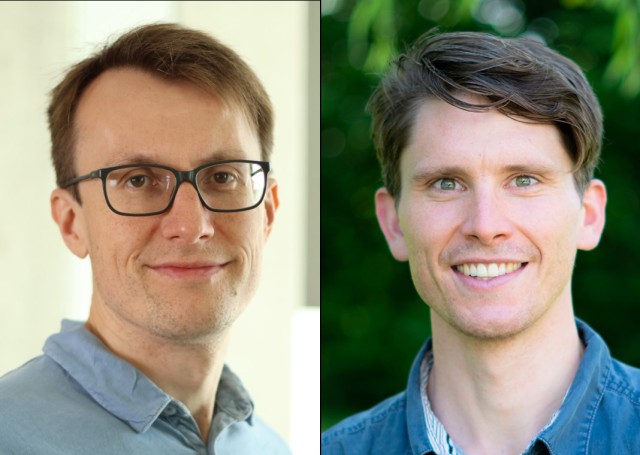5 December 2023
from 14:00
to 16:00
MCQST Colloquium | X-mas edition with Kirill Fedorov & Johannes Zeiher
Address / Location
MPI of Quantum Optics | Herbert Walther Lecture Hall
Hans-Kopferman-Straße 1
85748
Garching
Show Map
Hide Map
The MCQST Colloquium Series features interdisciplinary talks given by visiting international speakers. The monthly colloquium covers topics spanning all
MCQST research units and will be broadcast live via Zoom for audiences worldwide. The main goal of the series is to create the framework for idea exchange, to strengthen links with QST leading groups worldwide, as well as to act as an integral part of the local educational environment.
MCQST Colloquium: X-mas edition with Kirill Fedorov & Johannes Zeiher
We are excited to invite you to the colloquium talks by Kirill Fedorov (WMI) and Johannes Zeiher (MPQ).
Agenda
14:00 | Talk by Kirill Fedorov on "Microwave quantum sensing"
14:30 | Talk by Johannes Zeiher on "Quantum simulation and quantum computing with neutral-atom arrays"
15:00 | Get-togehter and exchange with coffee, plätzchen & glühwein
Microwave quantum sensing - Kirill Fedorov (WMI)
 Left: Kirill Fedorov | Right: Johannes Zeiher
Left: Kirill Fedorov | Right: Johannes Zeiher Quantum simulation and quantum computing with neutral-atom arrays - Johannes Zeiher (MPQ)
Systems of many interacting quantum particles in and out of equilibrium feature numerous fascinating emergent properties. Their detailed understanding is essential to interesting applications such as quantum sensors or quantum computers.
Neutral atoms trapped in optical tweezers or optical lattices are an aspiring platform for experimentally studying the physics of such many-body systems, and to uncover the microscopic physical mechanisms underlying the complexity found in real materials or enhanced performance of quantum sensors.
In this talk, I will report on our recent progress on experimentally realizing large-scale neutral-atom quantum simulators with microscopic single-atom control. I will demonstrate the versatility of our approach to understanding many-body systems by discussing recent experiments performed on Hubbard and spin models in and out of equilibrium.
Furthermore, I will present neutral atoms as a promising quantum computing platform, which fulfills all of DiVincenzo's criteria. The combination of optical tweezers with optical lattices is a unique approach to scale the register sizes to beyond 1000 atoms, which, together with high-fidelity single and two-qubit operations, will pave the way to realizing highly controllable quantum systems beyond the regime accessible by classical computers.
About Johannes Zeiher
Johannes Zeiher studied physics at the LMU Munich and the University of Cambridge, where he obtained his masters degree in 2012. He did his PhD in the group of Immanuel Bloch at MPQ, focusing on quantum simulations with neutral atoms in optical lattices, in particular employing highly excited Rydberg states for realizing quantum spin models. For this work, he received the Otto Hahn Medal of the Max Planck Society. Following his postdoc as a Feodor Lynen Fellow at UC Berkeley with Dan Stamper-Kurn on single-atom cavity QED, in 2020 he joined the Quantum Many-Body Systems Division at MPQ as a research group leader. Since 2022, he leads the independent research group “Quantum Matter Interfaces” at MPQ, which is supported by the BMBF through the Quantum Future program for Junior Research Groups. His research focuses on quantum computing, quantum gas microscopy of many- and few-body systems in optical lattices and novel light-matter interfaces.
Join in-person or via Zoom
ZOOM
Meeting ID: 998 9779 8115
Passcode: mcqst2024